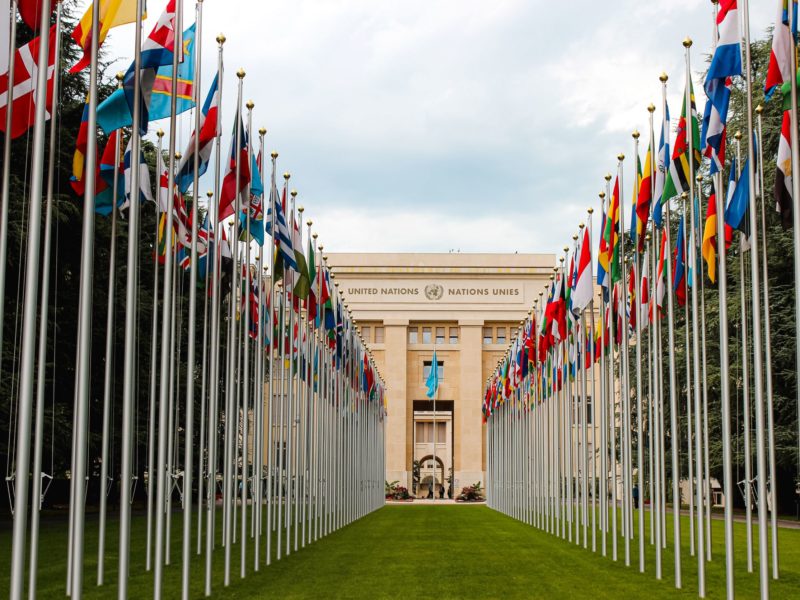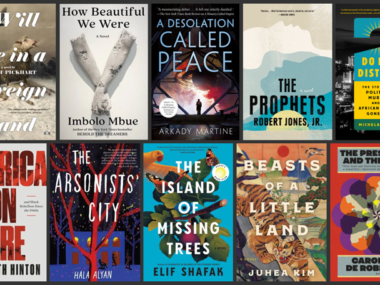Guest post by Brian Greenhill and Dan Reiter
Almost immediately after launching its invasion of Ukraine, Russia became a pariah state. Its violation of the norm of sovereignty—the idea that maintaining order in the international system depends on respecting other countries’ territorial integrity—was so brazen that it shocked the international community. Many international organizations were quick to call out Russia directly for its aggression. These included the United Nations (UN) and the Organization for Security and Cooperation in Europe (OSCE), two prominent international organizations that depend heavily on Russian cooperation.
As the horrors of the war become more apparent, pressure from international organizations has intensified. On April 7, Russia was forced out of the UN’s main human rights body, the Human Rights Council. The last and only other time this has happened was in 2011, when Libya’s membership in the Human Rights Council was suspended in response to its government’s violent repression of the pro-democracy activists. And on April 13, the OSCE accused Russia of committing war crimes.
Will criticism from international organizations make a difference? Many hope that it will send a powerful signal to Russians about just how out-of-bounds their government’s actions have become. Though criticism from individual countries might be sloughed off as political hot air, criticism from international organizations—that are supposed to rise above the political fray, and serve as the global conscience of core human values—might actually move the needle of Russian opinion. And, because Russia has in the past emphasized the norm of respecting the sovereignty of other nations, perhaps public opinion will be responsive to arguments about the unacceptable violation of Ukrainian national sovereignty—at least to the extent that ordinary Russians view Ukraine as a separate country.
In recent years, political scientists like ourselves have investigated the impact that international organizations have on public opinion. The results tell a mixed story: sometimes international organizations are able to move public opinion in the intended direction; other times they are not. More worryingly, some studies suggest that international criticism can lead to a backlash—that is, it moves public opinion in the opposite of the intended direction. Which directions things go seems to depend on what kinds of arguments about human rights people find persuasive. For example, one study found that people were more responsive to critiques of torture centered on its cruelty rather than its effectiveness. Other research has shown that people are more willing to violate international norms than they think they are.
In a newly-published article in the Journal of Human Rights, we consider whether and how international organizations can shift public opinion on issues of human rights. We also examine what happens when national governments try to counter the messages that international organizations send out—as Russia is clearly trying to do in the face of mounting international criticism of its war in Ukraine.
To do this, we designed an experiment where we studied the effects that different types of messaging about alleged human rights abuses have on public opinion. The issue we focused on was the overuse of solitary confinement in US prisons. We told some of our respondents that international organizations are criticizing the US for violating its obligations under the UN’s Convention Against Torture, a landmark human rights treaty that the US signed in 1988, while telling other respondents that the US government says it is not in violation of the treaty. We then looked to see if there was a difference among the respondents in terms of their attitudes about the use of prolonged solitary confinement.
Unfortunately, our results paint a bleak picture. We found that criticism from international organizations did not move public opinion in the direction that the international organizations intended. In some cases, criticism from international non-governmental organizations like Amnesty International actually led to a backlash. At the same time—and unlike another recent study—we found that messages from the US government could neutralize many of the concerns that the public might otherwise have had about violations of international law.
Surprisingly, it wasn’t just conservatives who responded strongly to the government’s defense of its human rights record. Antipathy to international organizations and sympathy for the government’s message turned out to be strong among both Republicans and Democrats. What makes this especially surprising is that we conducted this survey in 2019—a time when Democrats were highly energized in their opposition to the policies of the Trump administration. Yet, Americans from both sides of the political spectrum put party politics aside and pushed back against an outsider’s critique of American policies.
What does all of this mean for the war in Ukraine? Though our survey was conducted in a democracy, other work suggests similar dynamics in authoritarian settings. For example, dictators typically face fewer anti-government protests when their countries are targeted by economic sanctions. In the current context, our work suggests that if we’re counting on international condemnation of Russia to help mobilize Russians against Putin’s regime, we need to proceed with great care. Our study showed that international organizations might not serve their hoped-for role as respected arbiters of right and wrong. Rather, when they criticize governments, they are sometimes viewed as threats to the nation, pulling the population closer together and towards the government, rather than towards the opposition.
The critical challenge for international organizations—and for the political scientists who study them—will be to develop ways for the international community to criticize governments without invoking a backlash among the domestic groups we’re hoping to keep on our side.
Brian Greenhill is an Associate Professor in the Department of Political Science in Rockefeller College at the University at Albany, SUNY. Dan Reiter is Samuel Candler Dobbs Professor in Political Science at Emory University.






